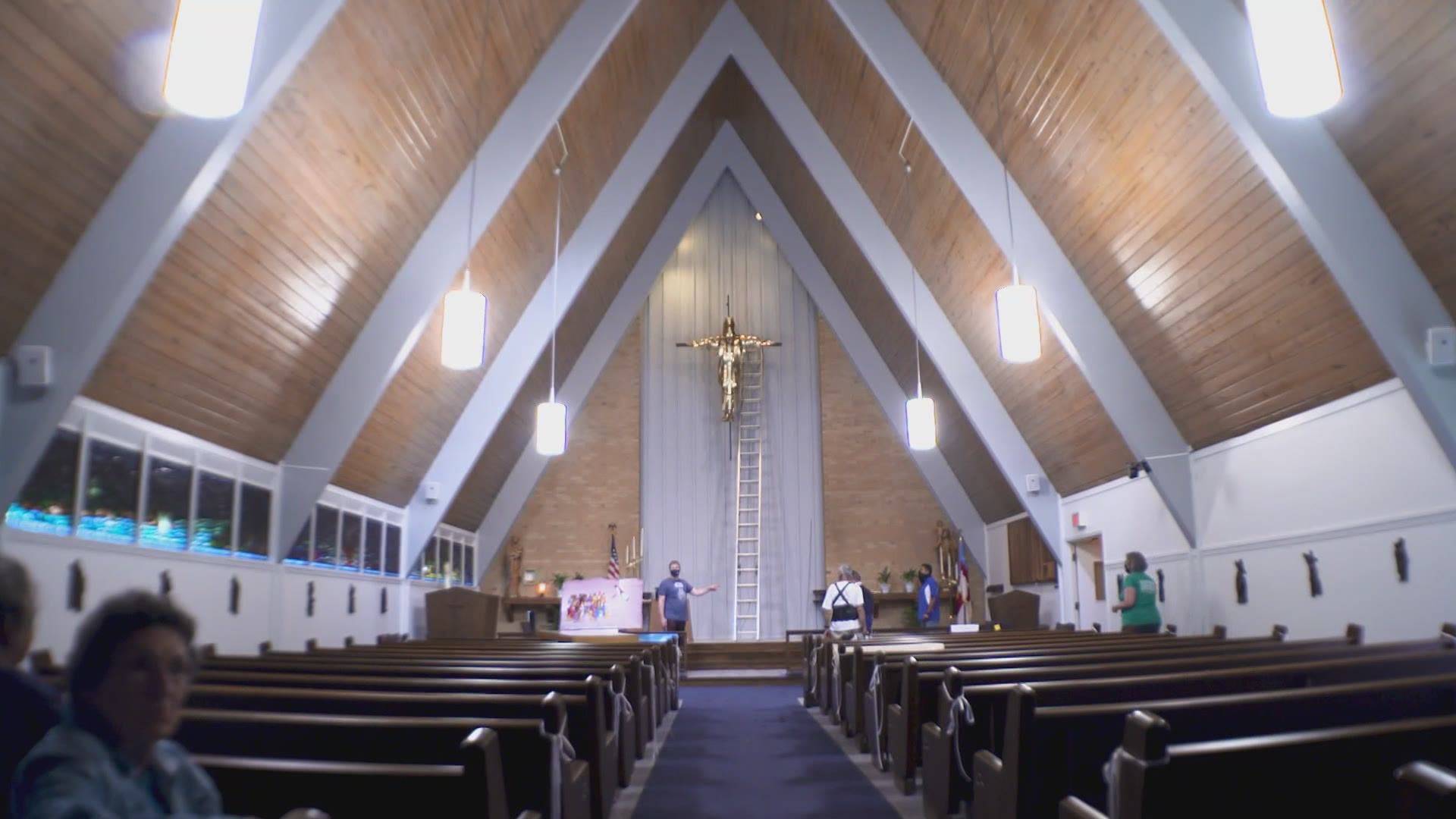Jackie Meeks sat in the back pew she’s called home for years, as a handful of fellow church members took down a golden six-foot tall Christus Rex hung above the altar.
“It’s so crazy to see it coming down,” she said. “You just think it would always be there.”
She’s a member at St. Christopher’s, which is one of six Fort Worth Episcopal churches moving out of their buildings over a lawsuit that has divided thousands of the faith’s members in North Texas.
Now, boxes line hallways and fill kitchens, all waiting to be stored until they, and the golden replication of Jesus, can find a new home.
“I think it’s sad because now it’s going to go in storage somewhere,” Meeks said. “It’s like, who puts Christ in storage?”
In 2008, 48 congregations in the Episcopal Diocese of Fort Worth broke away from the national church because of disagreements over doctrine, mostly on women becoming clergy, which was approved by the general convention in 1976. Despite the approval, it was still mostly denied to women in Fort Worth, and so were LGBT marriages in the church.
Fifteen congregations remained with the national church and sued the new breakaway group, which is now affiliated with the Anglican Church in North America. They argued that the national church owned the property and therefore, the breakaway group would not be allowed to keep it.
In total, $100 million of property was on the line in the suit.
A district court judge initially sided with the group that stayed with national church, but after a back and forth and the U.S. Supreme Court declining to hear the case this year, the Texas Supreme Court’s decision siding with the conservative breakaway group was upheld.
Three congregations that remained with the national church were able to work out an agreement with the ACNA and keep their buildings, but six churches must be out of their buildings by Monday, April 19.
“The church is the people, not the building,” Rev. Canon Janet Waggoner, one of the leaders of the Episcopal Diocese of Fort Worth, said. “It’s about how wide the circle of inclusion should be.”
Waggoner and the group that stayed with the national church may even lose the right to use the diocese name and logo over the lawsuit.
“These buildings aren’t just places where our congregations are,” Waggoner said. “They’re really community centers.”
The churches being evicted include St. Luke’s in the Meadow Episcopal Church, All Saints’ Episcopal Church, St. Christopher Episcopal Church and St. Elisabeth’s & Christ the King Episcopal Church.
Outside of Fort Worth, St. Stephen’s Episcopal Church in Wichita Falls and St. Mary’s Episcopal Church in Hillsboro will leave, too.
“Eviction right now is coming after 12 years of lawsuit,” Rev. Canon Jay Atwood, a leader of the breakaway group, said. “To me, the whole process has been a tragedy for the faith.”
In a statement, the group’s bishop, Right Reverend Ryan S. Reed said, “the five churches that were held hostage from the diocese for the last 12 years are being returned to us. In this process, we have offered to continue housing a food pantry and a preschool previously established on two of the properties, but both of these offers have been rejected. The experience brings to mind the words of Psalm 120: I am for peace: but when I speak, they are for war.”
Atwood said the dispute has deeply divided the community.
“Like the Civil War in the United States, it has divided families, friends, neighbors, parishioners, congregations over property,” said Atwood.
“It’s really interesting he used that analogy,” Waggoner said. “What we stand for is loving all people.”
Atwood said they plan to have a priest and at least a few parishioners in each vacated building, and they hope to build up congregations in each.
For Meeks, it’s the heritage left that hurts. Her mother is in one of St. Christopher’s columbaria that she’ll no longer see each Sunday.
“The saints are here. The souls are here,” she said. “It’s like leaving your birth home.”
The congregations are still figuring out where and when they’ll be able to open the packed boxes again. Some have found new homes are still, and others are still seeking space.
While other denominations struggle with the same questions about how to handle questions of faith in a modern world, the groups share different lessons from the legal battle.
“Churches need to follow the biblical understanding, and that is we don't need to be suing each other, especially for property,” said Atwood.
“Stand up for what you know is right especially if you’re speaking for others,” Meeks said. “This is the definition of faith. Continuing to believe, continuing to move forward when you’re not seeing positive signs.”
Waggoner said their faith and church will survive beyond the walls they’ve called home.
“They’re determined to continue loving their neighbors in the places where God has planted them,” she said.

